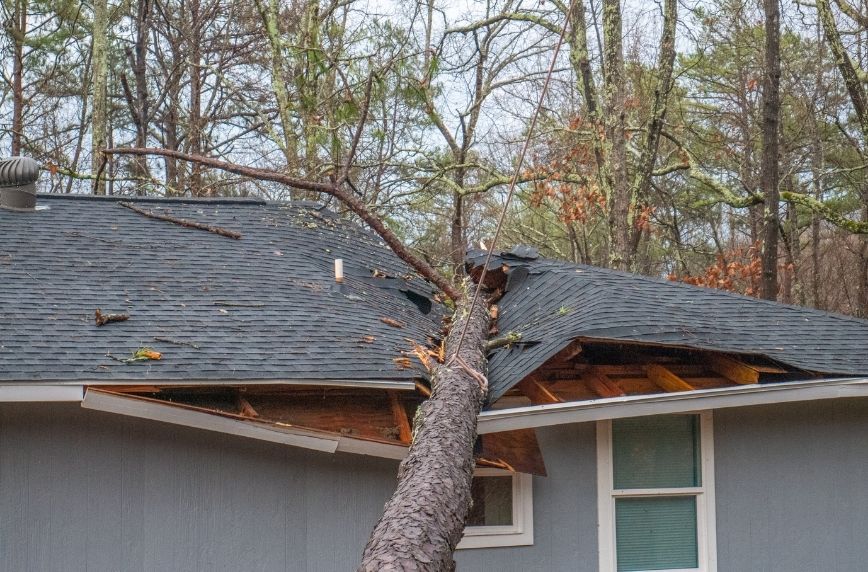What To Do When a Storm Damages Your Home


Every disaster involves multiple stages of response. There’s the initial reaction oriented around preserving people’s safety amid the unknowns. Then, people need to assess the damage and determine what needs repaired. Finally, the rebuilding and recovery phase can begin.
This is often the progression that governments work through for large-scale hurricanes, earthquakes, floods, wildfires, and more, but these three steps also apply to individuals and their homes. To get a fuller idea of what to do when a storm damages your home, read these practical tips.
Watch for Hazards
On the day of the storm, take every possible precaution. Damage to your home is unfortunate, but the first priority is your family’s safety. Listen to local broadcasts for warnings. Steer clear of downed trees, electric poles, and standing water or floodwaters. If your home sustains major damage that threatens the occupants, relocate to a safer location to limit your chances of injuries. In general, leave the cleanup phase for later, once you know more about your area and the condition of various systems in your home.
Document Your Damage and Submit an Insurance Claim
The next thing to do when a storm damages your home is to assess the damage and get in touch with your home insurance company. Check your entire property to see if the storm toppled any structures. Then, scan your siding, windows, and gutters for cracks or dents. It’s imperative that you also check your roof, in part because you may need to have it patched in the meantime.
Transitioning indoors, determine whether you have basement flooding, appliance damage, or any other issues. Document everything and read up on your insurance plan so that, when you call your insurance provider for an assessment, you have everything you need for them to help you towards recovery.
Hire Contractors To Repair Damage
Once you learn what insurance will pay for, you can look into hiring contractors to repair or replace the damage. In some cases, you may want to contact a contractor even before you have an insurance rep out to your property so that you have some expert backup. Beware the inevitable flood of cheap-labor contractors after a regionwide storm, though. They may tempt you with their rates, but you don’t want to skimp when it comes to the quality of your roof or your plumbing.
Go with a trusted expert, and consider how you can improve your home as you make these repairs. For instance, you may want to take advantage of the benefits of metal roofing once yours gets some dings or replace the ugly siding you inherited. This improvement process makes an altogether stressful situation just a bit better.
